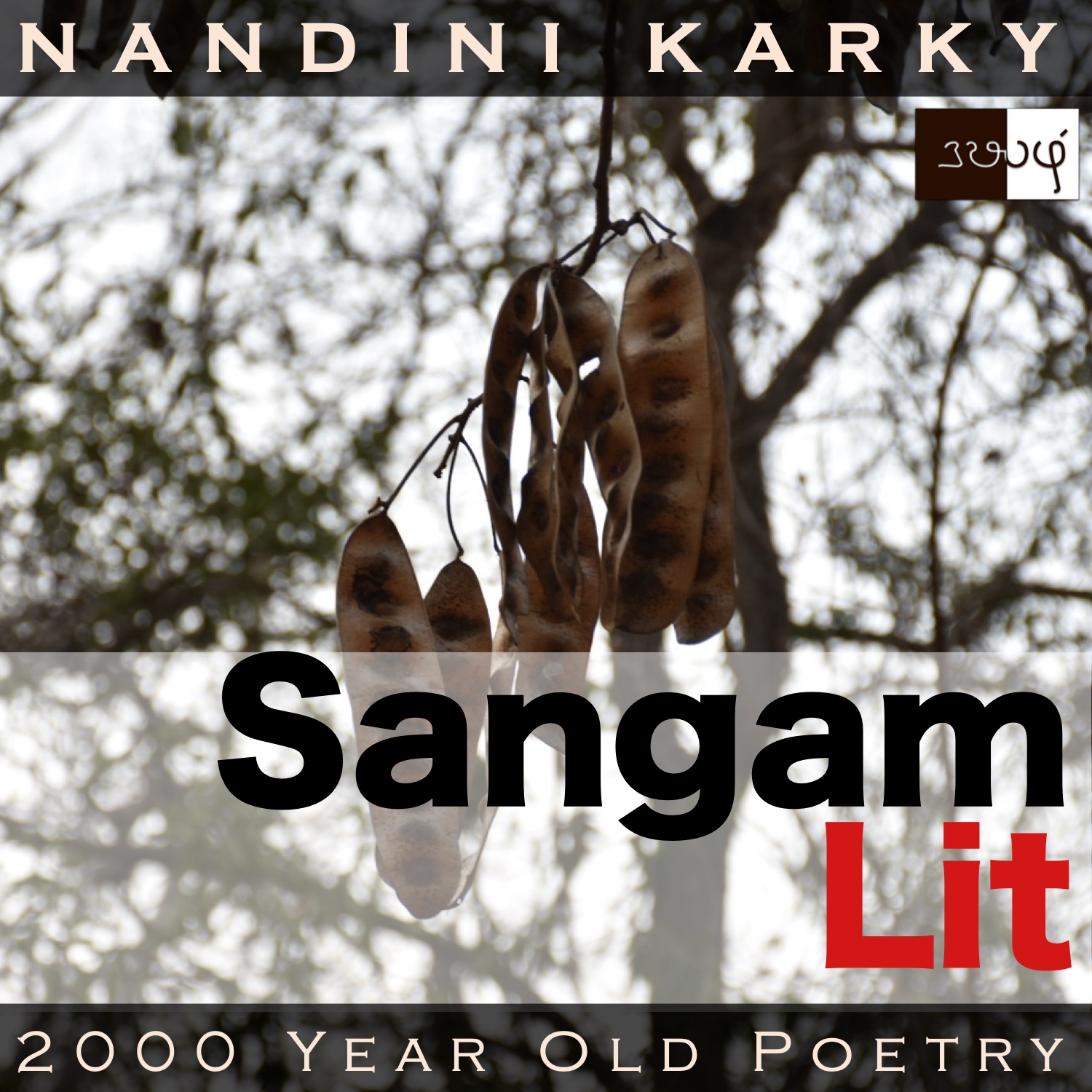Podcast: Play in new window | Download
Subscribe: Apple Podcasts | Spotify | Amazon Music | Android | iHeartRadio | TuneIn | RSS | More

In this episode, we listen to a decisive plan of action as depicted in Sangam Literary work, Kurunthogai 369, penned by Kudavaayil Keerathanaar. Set in the drylands of ‘Paalai’, the verse speaks in the voice of the confidante to the lady, expressing the need for the lady to elope away with the man.
அத்த வாகை அமலை வால் நெற்று,
அரி ஆர் சிலம்பின், அரிசி ஆர்ப்பக்
கோடை தூக்கும் கானம்
செல்வாம்-தோழி!-நல்கினர் நமரே.
‘You need to leave with him’ says a voice in this verse! The opening words ‘அத்த வாகை அமலை வால் நெற்று’ meaning ‘the drylands lebbeck tree’s noisy and lustrous seed pods’ bring to fore, the unmistakable feature of this tree that gives it many curious names such as ‘Shak Shak tree’ and ‘woman’s tongue tree’. In ‘கோடை தூக்கும்’ meaning ‘summer winds sway’, we perceive how the contemporary Tamil word for the summer season, ‘கோடை’ has been used to refer to the hot breeze that blows then. Ending with the words ‘நல்கினர் நமரே’ meaning ‘he has rendered his assent’, the verse intrigues our curiosity.
What has the man accepted? The context reveals that the man and lady were leading a love relationship and were trysting together for a long while. One day, the confidante comes to the lady and says, “Seeds within the glowing pods of the drylands ‘vaagai’ tree resound with the sound of stones in an anklet as they sway with the summer winds in that scrub jungle. Go thither, my friend, as your man has rendered his grace.” With these words, the confidante informs the lady that the only course of action was to follow the man’s words and elope with him to his village.
Time to explore the nuances in this tiny verse. The confidante starts by talking about how the pods of the ‘vaagai’ tree seem to sound like an anklet filled with precious stones, as summer winds blow and sway these in the scrub jungle. After that place description, the confidante concludes by saying that’s where the lady must leave to, because the man has given his approval.
That the man has given approval means it was the confidante’s idea that the man and lady should elope together. Why should she come to that conclusion? Only because the lady’s kith and kin were not ready to offer the lady to the man and the only way for them to protect their relationship was to part away with the man to his village through the drylands. A question pops up in my head as to why travellers, whether they were going in search of wealth or eloping away, always needed to pass the drylands? What is the geographic significance of this repeated theme in Sangam literature?
Returning from these questions, we see how in the image of summer winds swaying the seed pods of the lebbeck tree, the confidante places a metaphor for how the lady too must sway in the direction of the man’s decision. Speaking of the lebbeck tree, as mentioned earlier, to some people, the seed pods seem to make a ‘Shak Shak’ sound, and to others, naughty minded men perhaps, it sounds like a group of women gossiping. However, to the people of Sangam times, these seed pods sounds like an object of art, an anklet, something inseparable from their culture, so much so, it becomes the name of their earliest epic, ‘Silapathikaram’ or ‘The tale of the Anklet’. A verse that stands testimony to the creative ways of seeing the world around!




Share your thoughts...